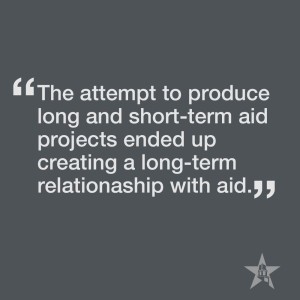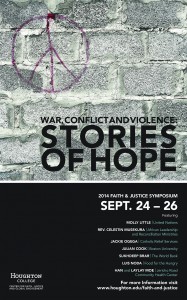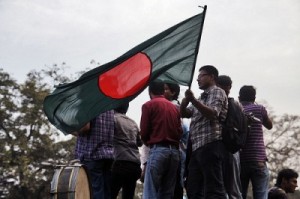In 2010, the country of Haiti experienced a magnitude seven earthquake which displaced thousands of people and left hundreds dead. This earthquake left the country in physical shambles. Many of the people living in Haiti became infected with cholera in addition to being left hungry and homeless. The world’s response was immediate: Billions of dollars were spent on bringing foreign aid to the people of Haiti to provide clean drinking water, shelter, medical supplies, food, and other necessities. The hope was that eventually aid could relieve some of the strife that occurred due to the earthquake. Sadly this aid only created dependency. The attempt to produce long and short-term aid projects ended up creating a long-term relationship with aid.

Now, just a couple weeks ago Hurricane Matthew hit the Island of Haiti. While the hurricane was only a category four, it had far greater impact on a country that was already struggling. This scenario looks all too familiar for the people of Haiti, as they have been further displaced, harmed, and now are trying to rebuild the lives they have been working on repairing for the past six years. The information coming out of Haiti reports 900 deaths and climbing. Again, the country of Haiti experienced a tremendous amount of infrastructure damage, displacement of people, and a further dependency on aid. The people located in the more rural areas are once again dealing with a cholera outbreak due to the lack of clean water; it is the disaster of 2010 all over again.
The real question now is what do we do, or perhaps even if we should bother helping. According to the BBC News, “The UN launched an emergency appeal for nearly $120m in aid, but just a fraction of it has been raised…” Countries are tired of sending money to a country that seems lost and hopeless. Many of us have probably seen the articles about The American Red Cross not actually producing results from the aid in 2010. One Huffington Post article said the organization had only built six permanent homes in Haiti, claiming 91 percent of donations went straight to charity, when in actuality only 60 percent had gone to charity. Even an organization many know, seemly cannot be trusted. So where should we be putting our money, and is it even worth it?
 In 2010, we ultimately failed Haiti, let us not do it again. Organizations were quick to respond to the destruction caused by the earthquake and in the wake of Hurricane Matthew, but that is not the way to create a sustainable way of living. Yes, we need address immediate needs by supplying clean water, shelter, and food, but we need to have a plan that goes beyond our initial reactions. The country of Haiti is no stranger to a corrupt government, lack of infrastructure, natural disasters, and resource exploitation. It makes sense that the country’s response to foreign involvement tends to be more skeptical and hesitant to allow Non-Governmental Organizations and governments to help. However, when we do so, we need to remember to involve the people themselves. Teams often come in with their own idea of what needs to be done without understanding the needs of the people. We come in with our checklists and our money, not understanding what the deeper issues are.
In 2010, we ultimately failed Haiti, let us not do it again. Organizations were quick to respond to the destruction caused by the earthquake and in the wake of Hurricane Matthew, but that is not the way to create a sustainable way of living. Yes, we need address immediate needs by supplying clean water, shelter, and food, but we need to have a plan that goes beyond our initial reactions. The country of Haiti is no stranger to a corrupt government, lack of infrastructure, natural disasters, and resource exploitation. It makes sense that the country’s response to foreign involvement tends to be more skeptical and hesitant to allow Non-Governmental Organizations and governments to help. However, when we do so, we need to remember to involve the people themselves. Teams often come in with their own idea of what needs to be done without understanding the needs of the people. We come in with our checklists and our money, not understanding what the deeper issues are.
Haiti is a country trapped in poverty, corruption and vulnerability, but that does not mean the country is without hope. By empowering the people of Haiti, we build a stronger force of those who believe in the efforts taking place to create a sustainable way of living. Aid must turn into development otherwise it perpetuates the dependency we see. Too often we read articles about people being frustrated with foreign involvement and seeing nothing happen within their country. What we need to see is foreign investors providing work for the people, giving them a sense of ownership and responsibility for what happens in their country. Haiti is not hopeless. The people just need to know they are capable.
Sarah is a senior majoring in international development and political science with a minor in Spanish.

 t is assumed she will be relating tales from her experience with the U.N.
t is assumed she will be relating tales from her experience with the U.N.